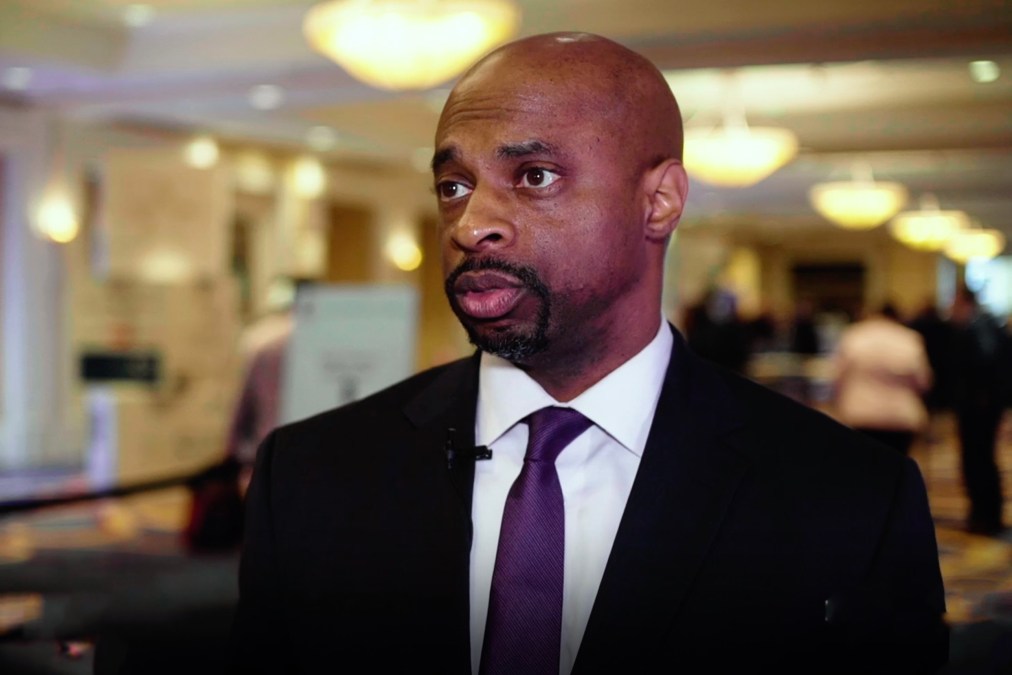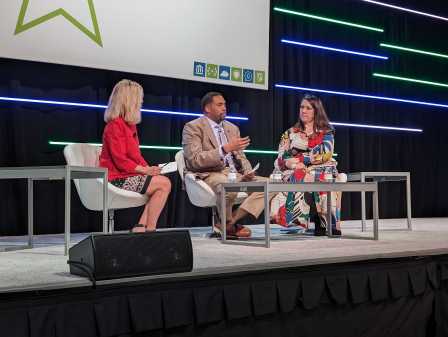Black CIOs share stories of pandemic accomplishments

Eight Black state chief information officers joined a virtual roundtable Wednesday to share how they landed in their jobs and how they’ve navigated a largely white IT industry, while also steering their governments through the COVID-19 pandemic.
The CIOs, whose backgrounds include military careers, foreign service, the tech industry and longtime government work, talked about how they’ve grown in their roles, especially during the health crisis, and how they’ve tried to cultivate newer, younger talent along the way.
“This is long overdue,” said Ohio CIO Ervan Rodgers, who moderated the discussion.
The event was organized by Wokanda, a Black-owned communal learning app developed by a Columbus entrepreneur that gets its name from a play on the fictional African nation in Marvel Comics’ “Black Panther.”
New York CIO Angelo “Tony” Riddick, who had been out of government since May 2019, when he stepped down as CIO of the U.S. Virgin Islands, said he was unaware he was in the running for his new job before getting a call last year in the middle of a round of golf.
“I talked to a person for four hours, missed the entire back nine,” he said.
DeAngela Burns-Wallace, Kansas’ CIO and the state’s secretary of administration, said she, too, didn’t expect to join state government before 2019. She had been working as vice provost of the University of Kansas in early 2019, when Gov. Laura Kelly’s office recruited her.
“Someone put my name forward unbeknownst to me,” she said. “I didn’t even know I was being considered.”
Before her career in academia, Burns-Wallace served as a U.S. Foreign Service officer in China and South Africa, an experience she said showed her leadership capabilities.
“I was 24 years old and running the entire consulate in Guangzhou,” she said. “It was 1999 and one of those duties was rolling into Y2K. Being open to opportunities even though they weren’t the sexiest at the time, showing that I’m ready, I’m willing, I’m prepared really make the difference.”
Rupert Ross, the current U.S. Virgin Islands CIO, and Minnesota CIO Tarek Tomes said they both got interested in technology first as a hobby, in Tomes’ case tinkering with a Commodore 64 computer he got as a child.
‘Sense of relief’ in Chauvin verdict
Rodgers then asked the group how they’d spent a recent workday. With the roundtable taking place one day after a Minneapolis jury convicted former police officer Derek Chauvin of the murder of George Floyd, Tomes was quick to recount how waiting for the decision to be read weighed on his team.
“Whatever our calendar says at the start of the day is not what happens at the end,” he said. “We brief the governor every day on the larger COVID response. And since last spring we’ve been preparing for what happened yesterday.”
Tomes said since Chauvin’s trial began, he and the people who work for him at Minnesota IT Services had to brace for the possibility of “an outcome no one wants to see,” including potential cyber incidents. (State websites were hit with denial-of-service attacks in the days following Floyd’s murder.)
Tomes said there was “just a tremendous sense of relief” when the guilty verdict was read Tuesday.
“I have 2,500 unbelievable technologists and I’ve been carving out time for them over the last 48 hours,” he said. “I’ve been continually worrying about folks and carving out times to talk about how they’re doing.”
Indiana CIO Tracy Barnes said he tries to define his job in three perspectives: “inward,” the inner workings of the Indiana Office of Technology; “outward,” decisions that affect the rest of state government; and “upward,” services provided to the state’s residents. Tuesday, he said, was a “pretty inward” day, full of meetings about IOT’s return to its office.
‘If we can do this…’
All the IT chiefs featured Wednesday said they were proud of their work during the pandemic. Oregon CIO Terrence Woods said that through COVID-19, as well as historic weather events including wildfires and ice storms, his team connected every county in the state to the OR Alert system, which sends emergency messages over broadcasts media, phone lines, text messages and social media.
Burns-Wallace said her agency was able to complete a long-delayed data center migration late last year.
“We’ve been able to jumpstart that and complete that in 10 months during a pandemic without any interruptions,” she said. “If we can do this in this moment, what we are delivering for every Kansan is transformative.”
And Washington, D.C., Chief Technology Officer Lindsey Parker said that early in the pandemic, she had her office’s help desk staff pivot from answering calls from city workers to helping families dealing with the sudden move to virtual learning.
“My employees who are used to answer staff questions, I had them answer parent and student questions from the public,” she said.






